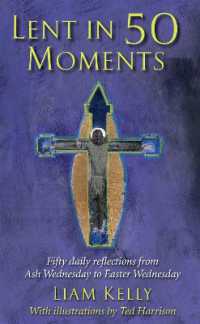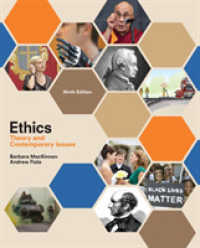Full Description
Richard Maidstone, Carmelite friar and anti-Lollard activist, devoted his life to upholding orthodoxy. His Anglo-Latin Concordia, written in the last decade of the fourteenth century, details King Richard II's royal entry into London, a spectacular event that officially ended his conflict with the city's merchant-oligarchs. Richard had long abused his royal prerogative to extort vast sums of money from his subjects. Though violence erupted in protest, it concluded in the king's 1392 "reconciliation" with London. Maidstone documents Richard's procession, the lavish gifts presented, the speeches given in praise, culminating in his re-enthronement at Westminster palace. David Carlson focuses on the poem's propagandistic features, highlighting Maidstone's royalist agenda, his belief in using fear tactics to exercise control, and his "peculiarly Ricardian notion of 'peace' in the form of submission to royal authority," no matter how cruel or arbitrary it might be. This is the first edition since the nineteenth century and offers a facing-page English translation from A.G. Rigg.
Contents
Acknowledgments
Introduction
Select Bibliography
Concordia (The Reconciliation of Richard II with London)
Explanatory Notes
Textual Notes
Appendices
Appendix 1: Other Accounts of the 1392 Royal Entry
Appendix 2: Accounts of Richard's 1377 Coronation Entry
Appendix 3: Dymmok on the Ricardian Extravagance
Appendix 4: Some Features of Prosody and Versification







